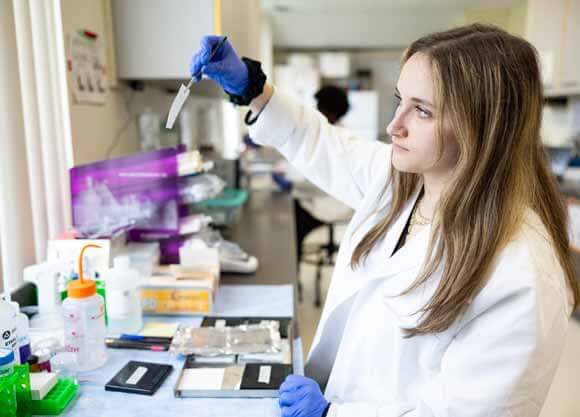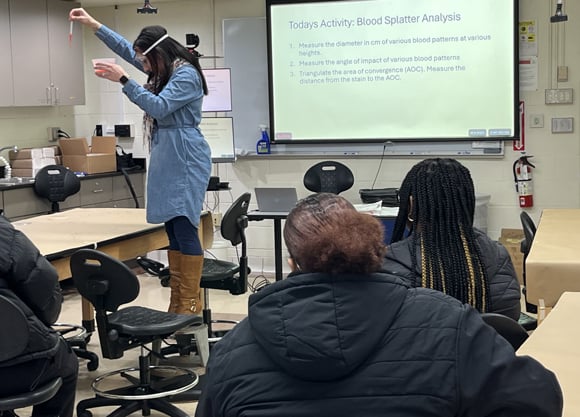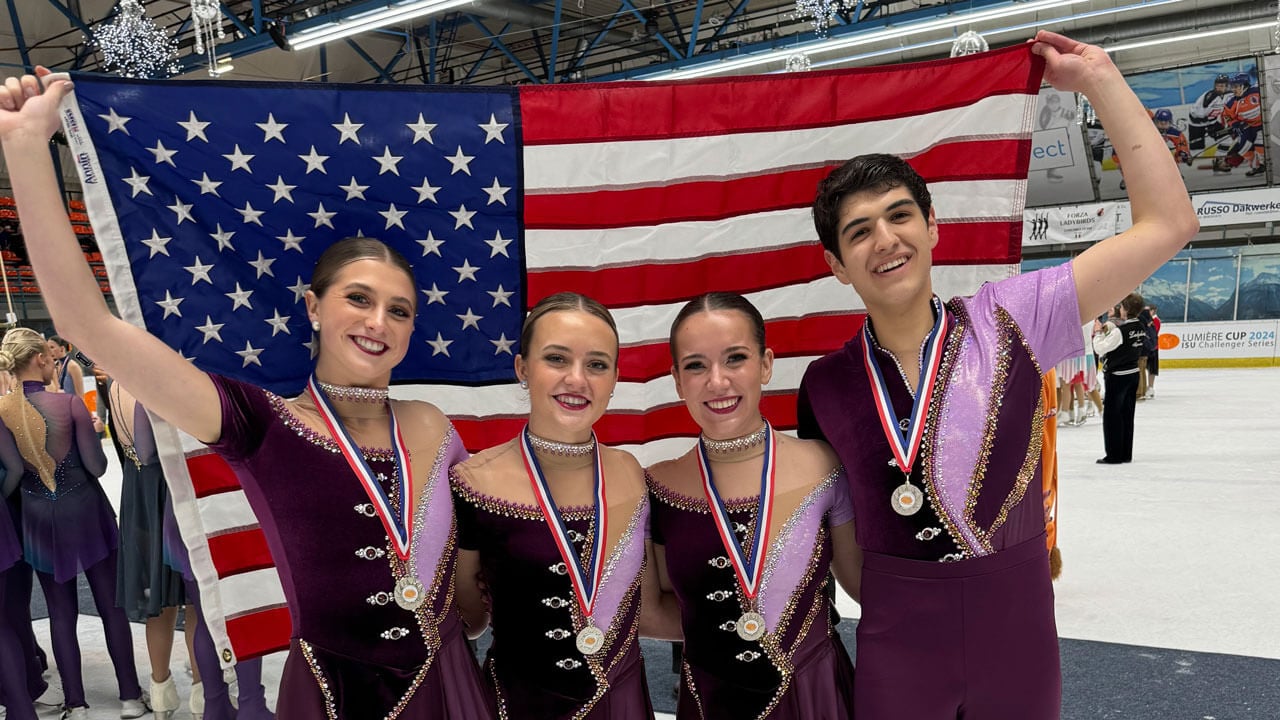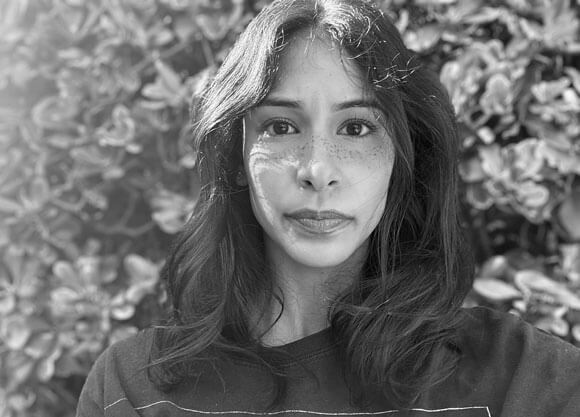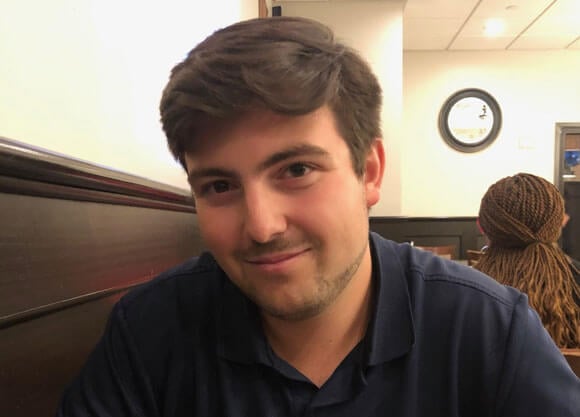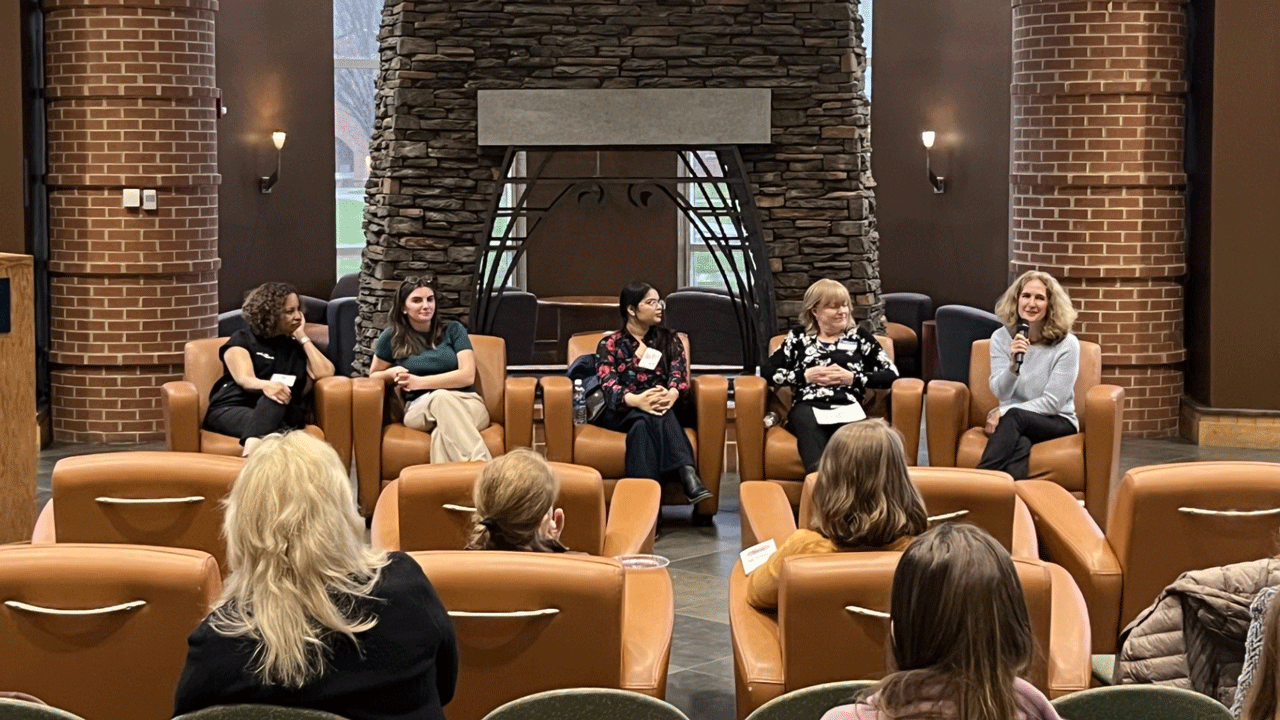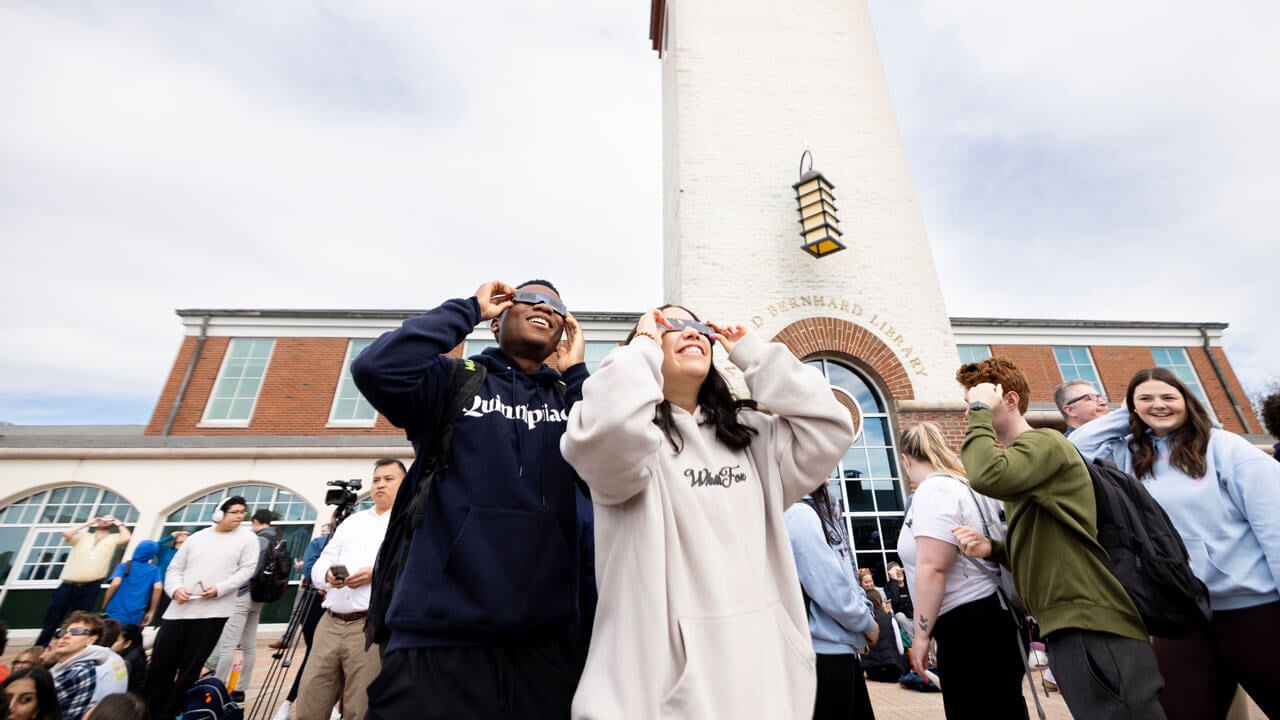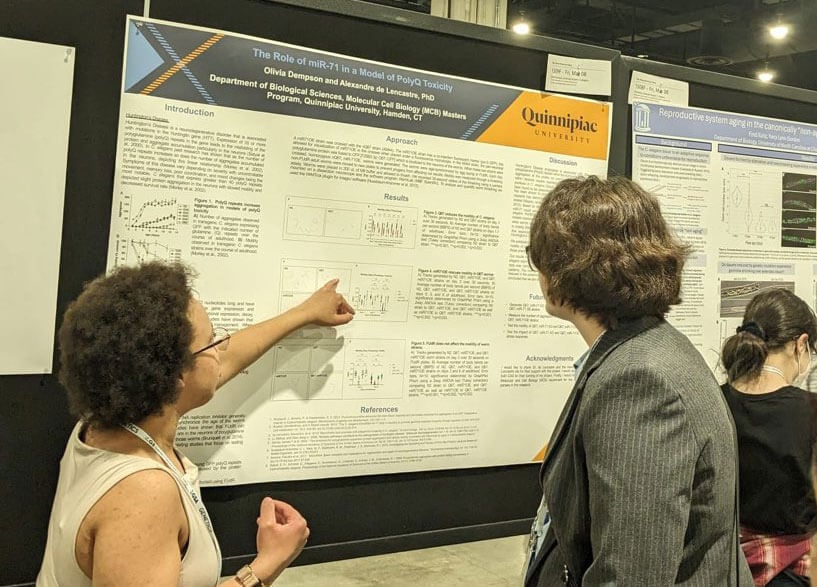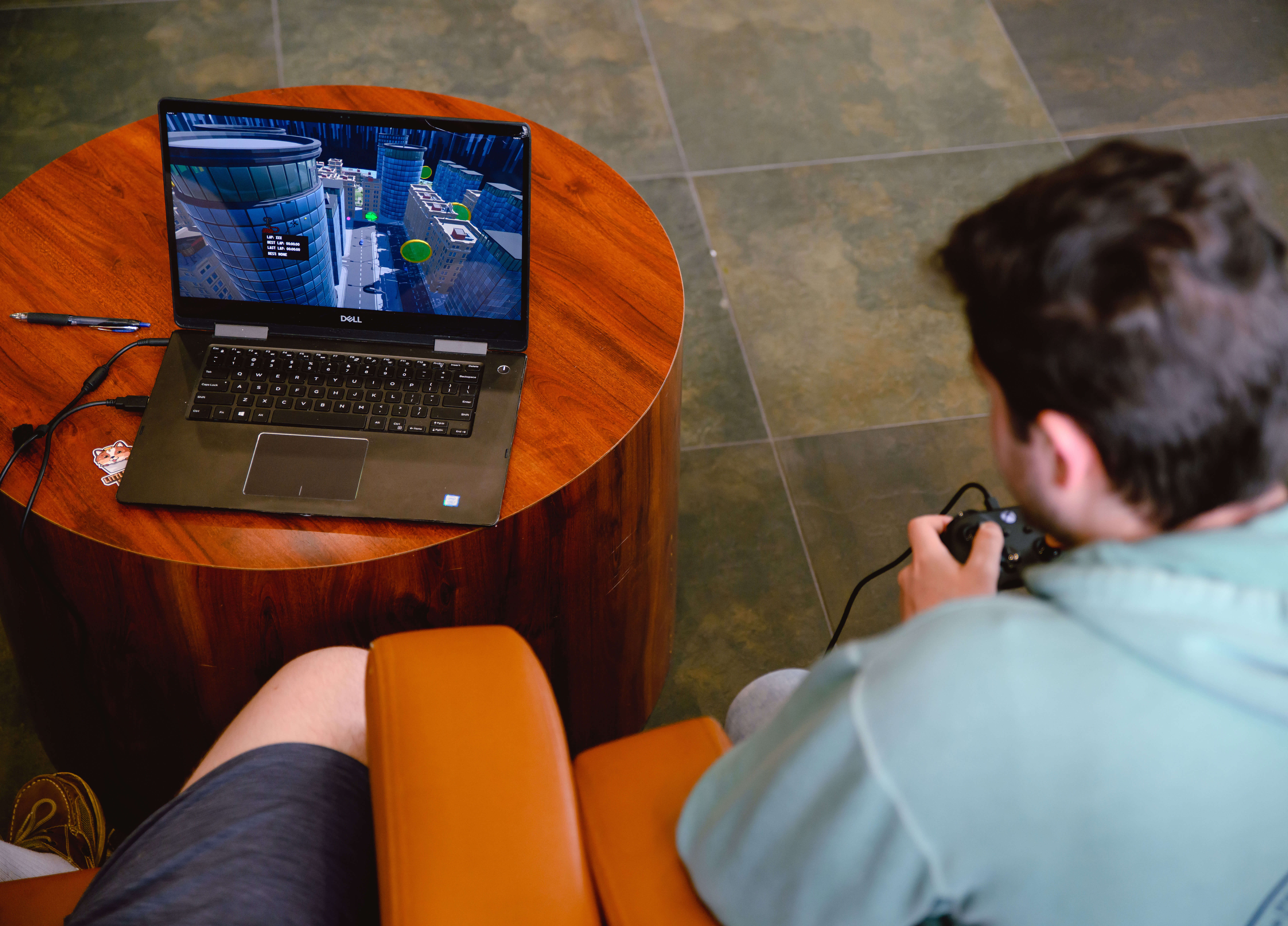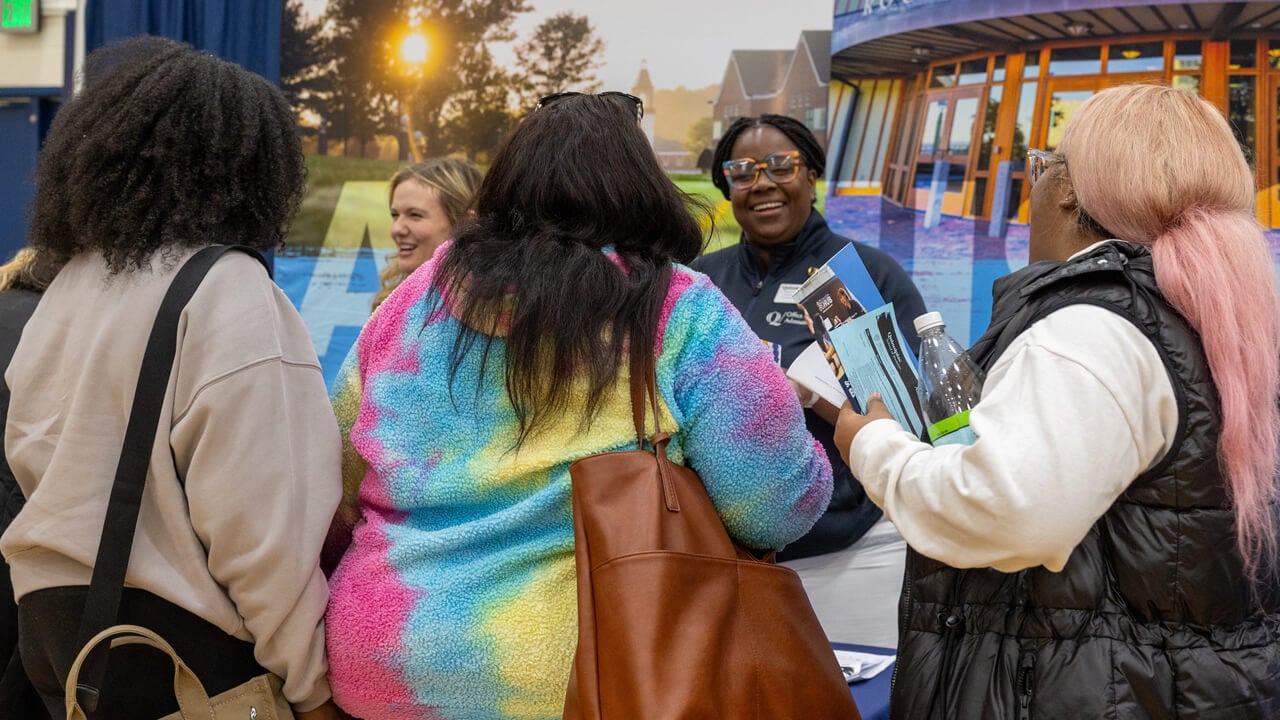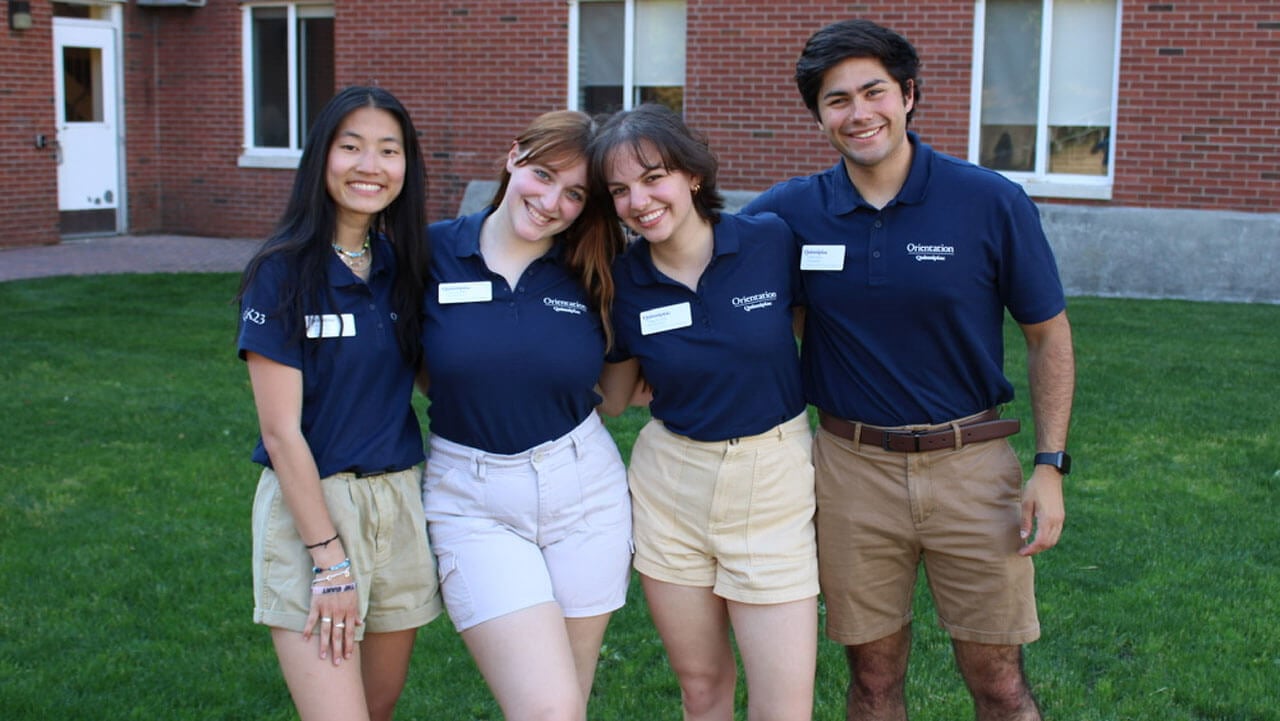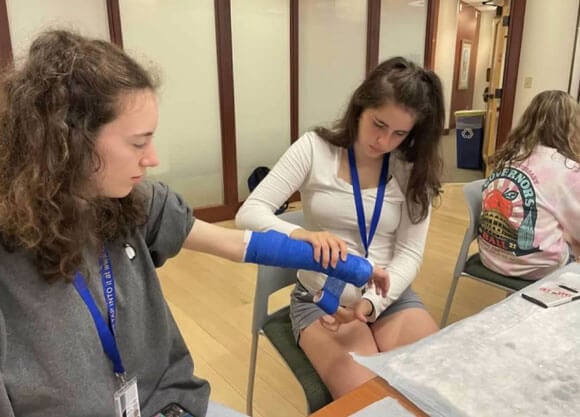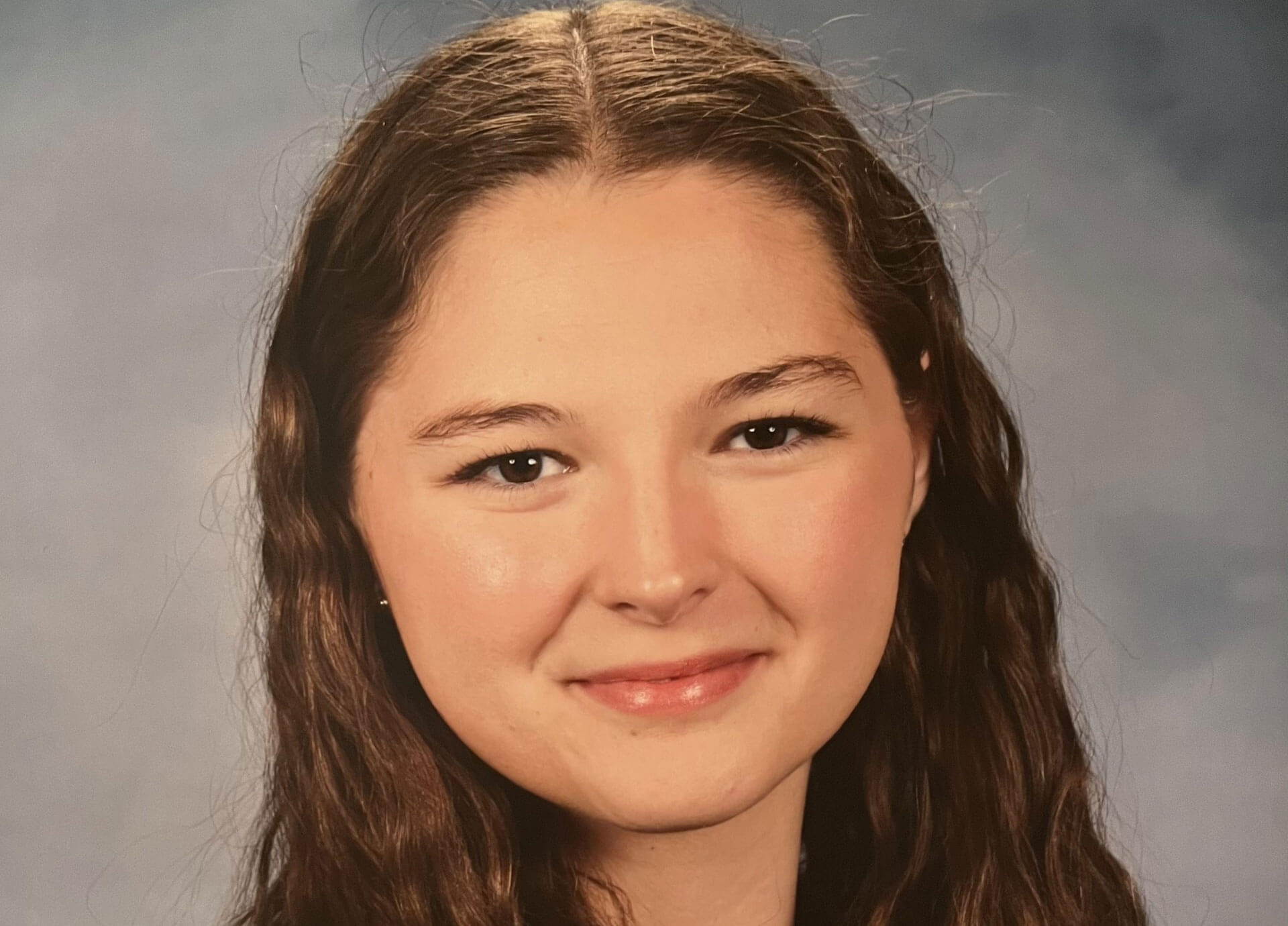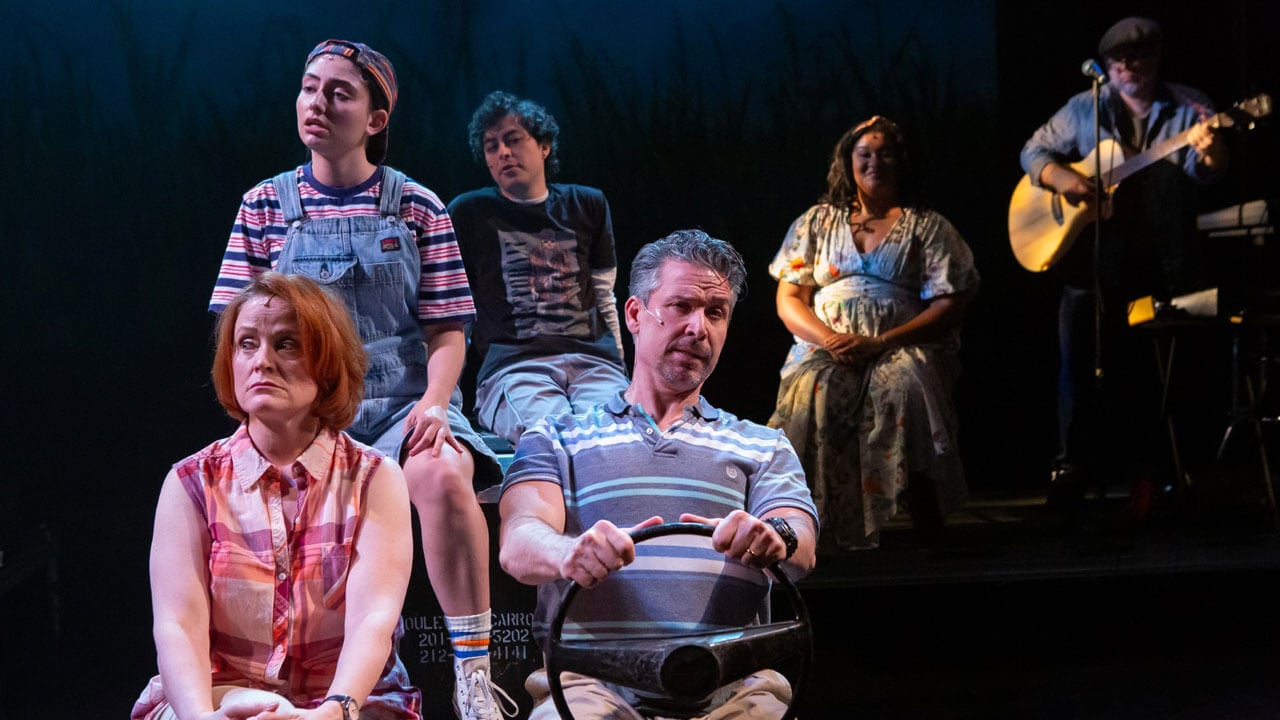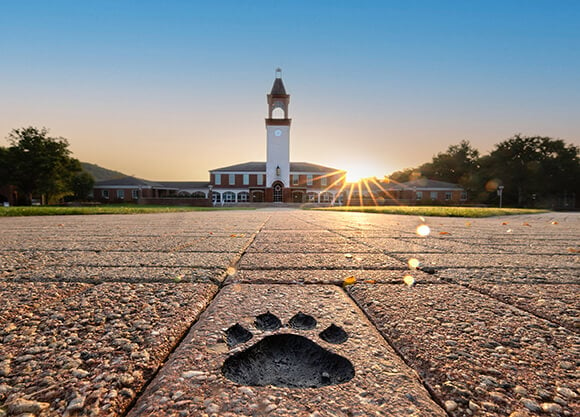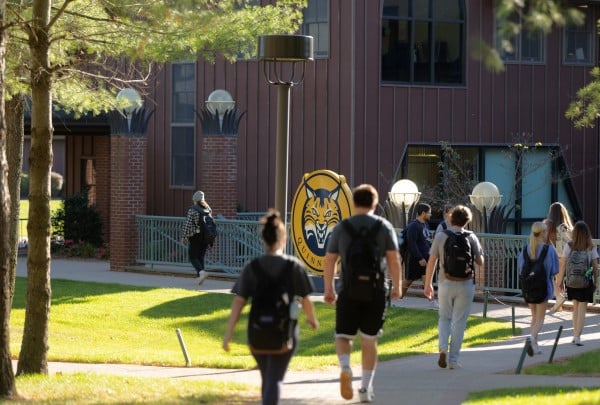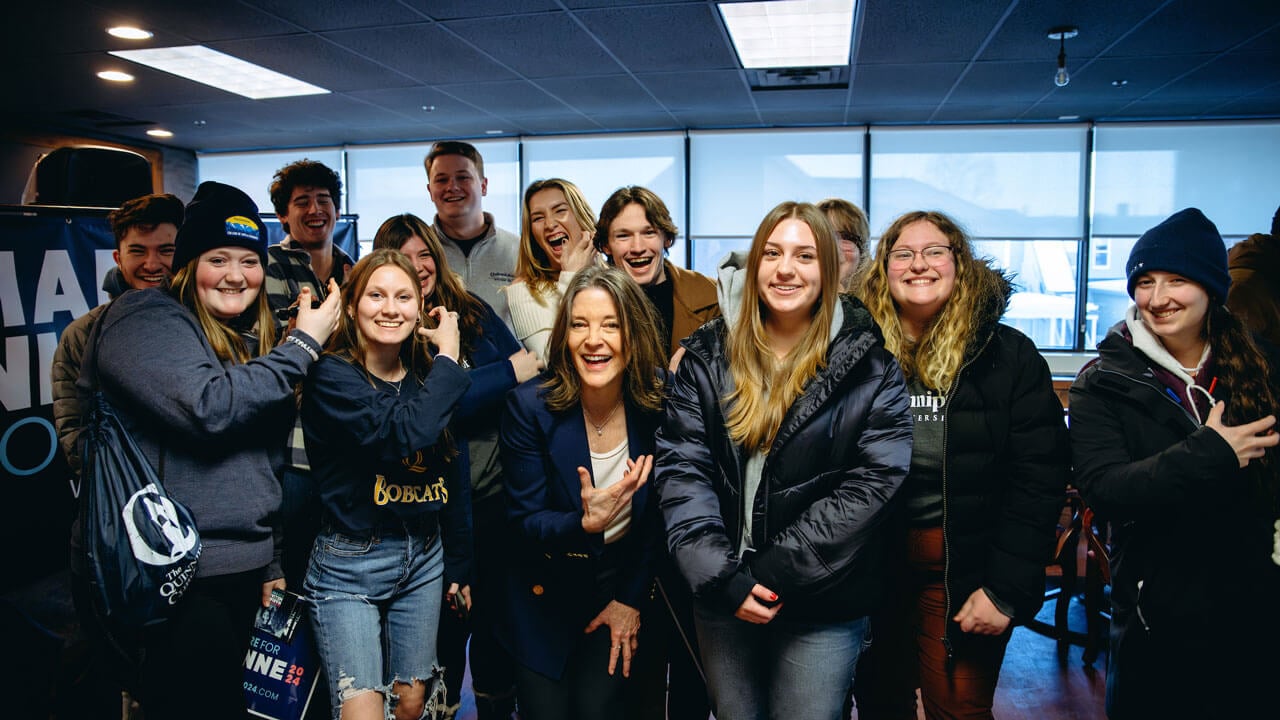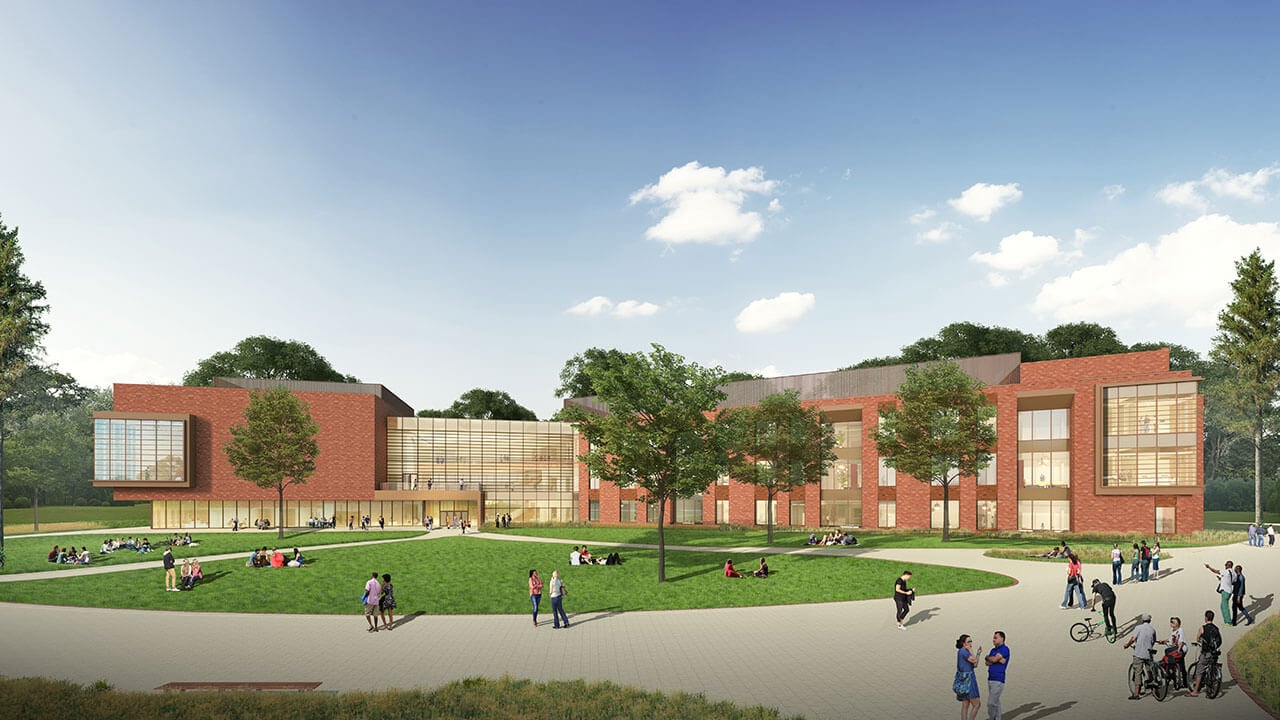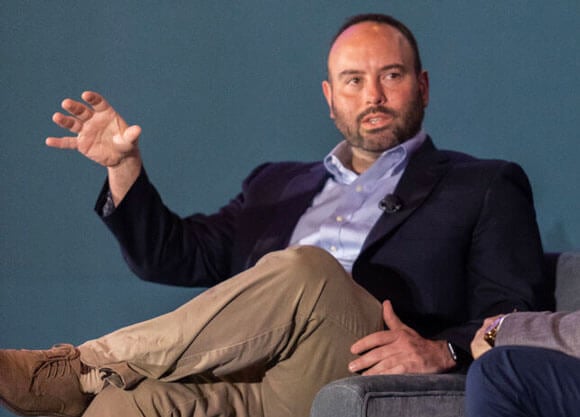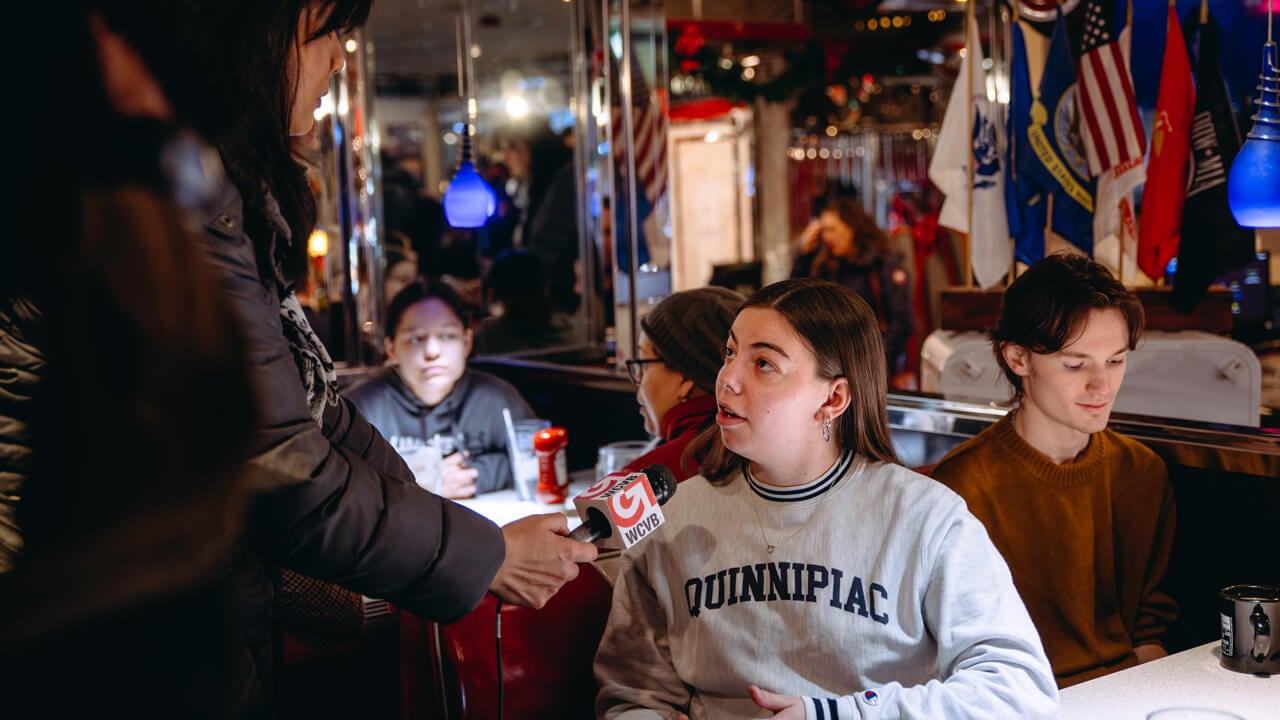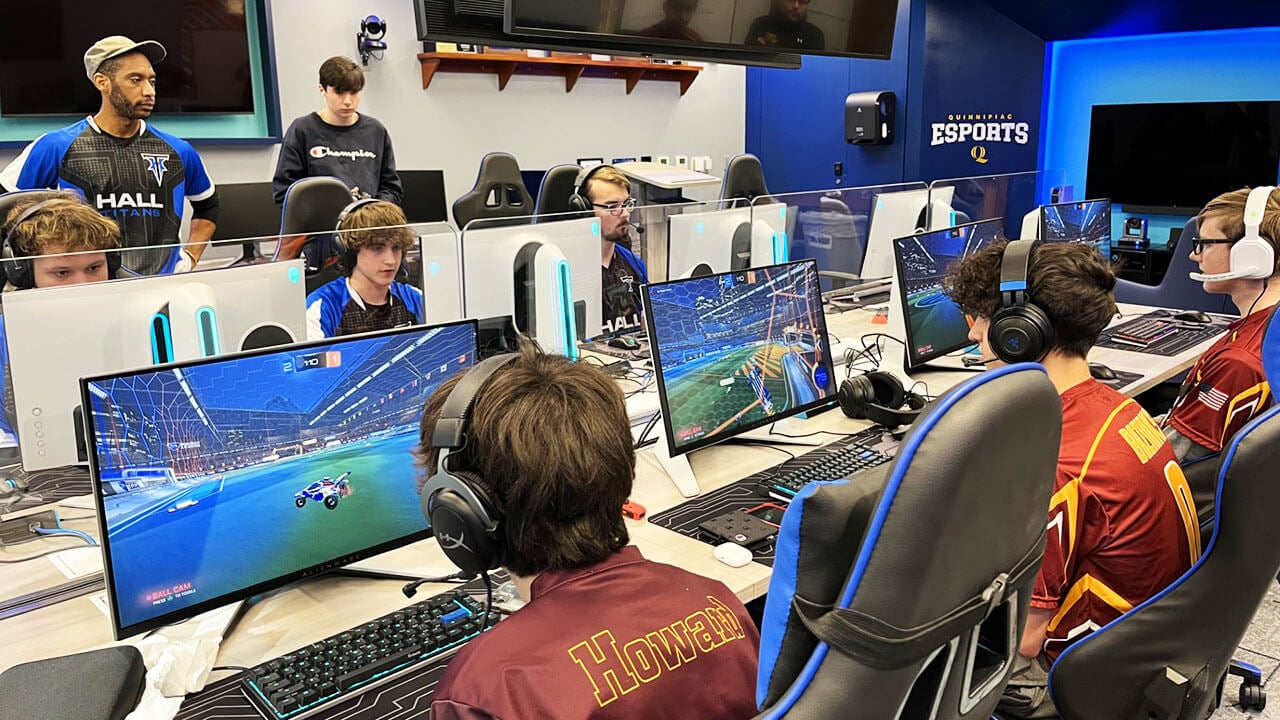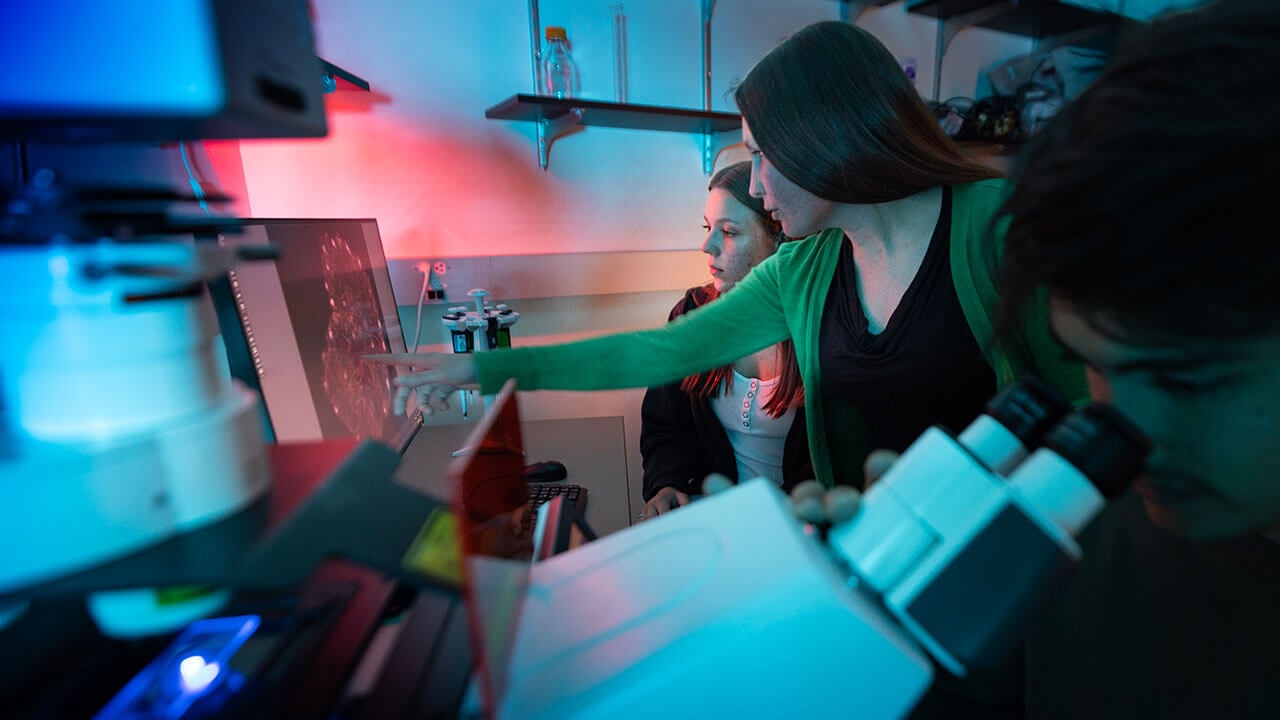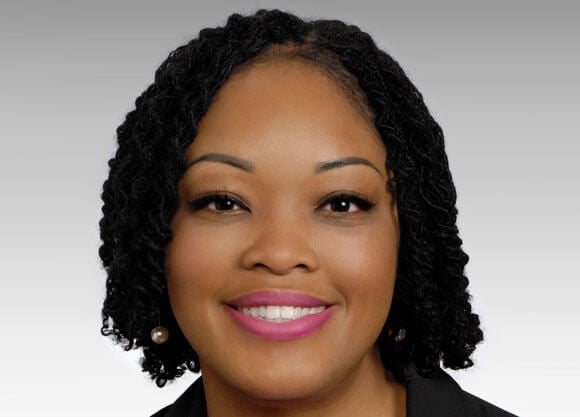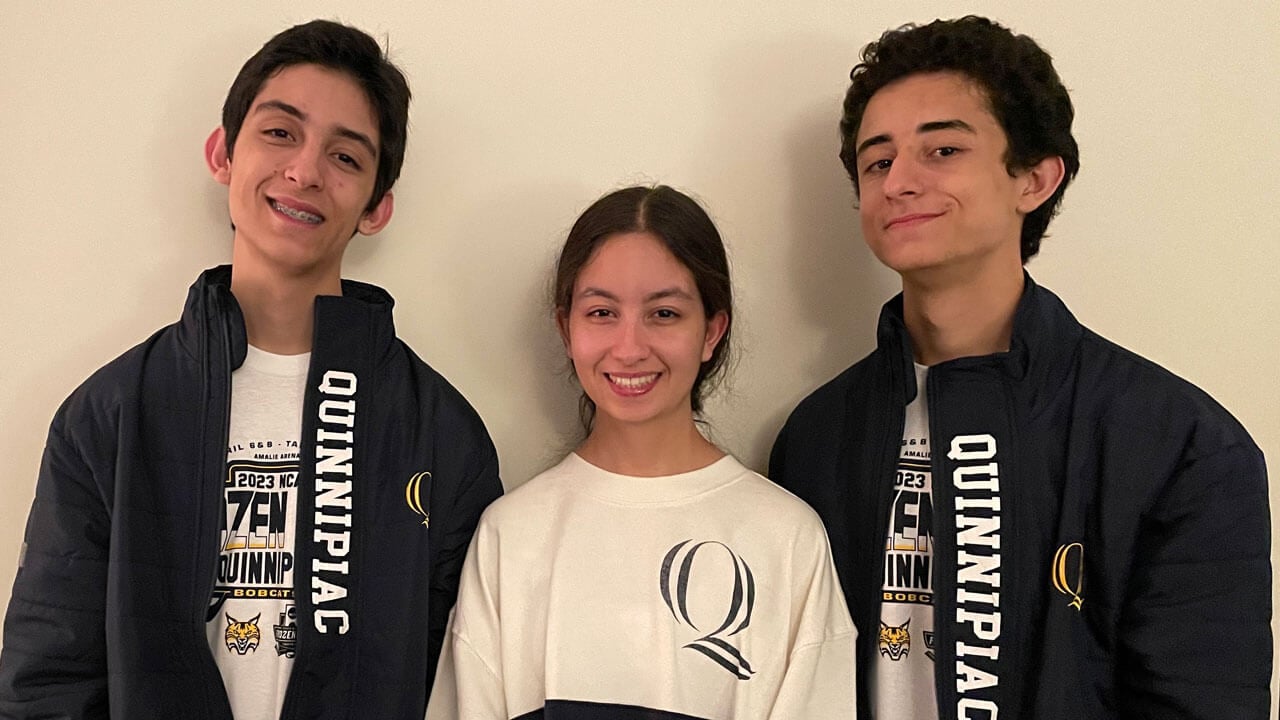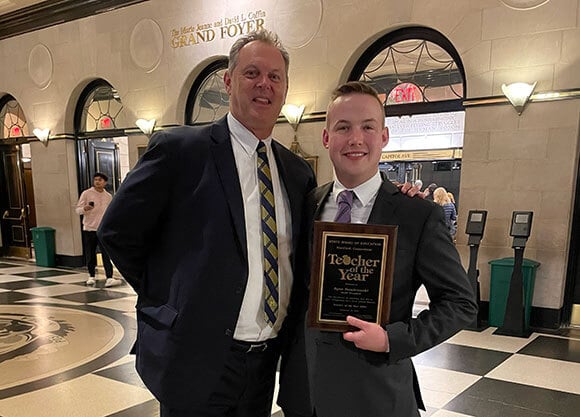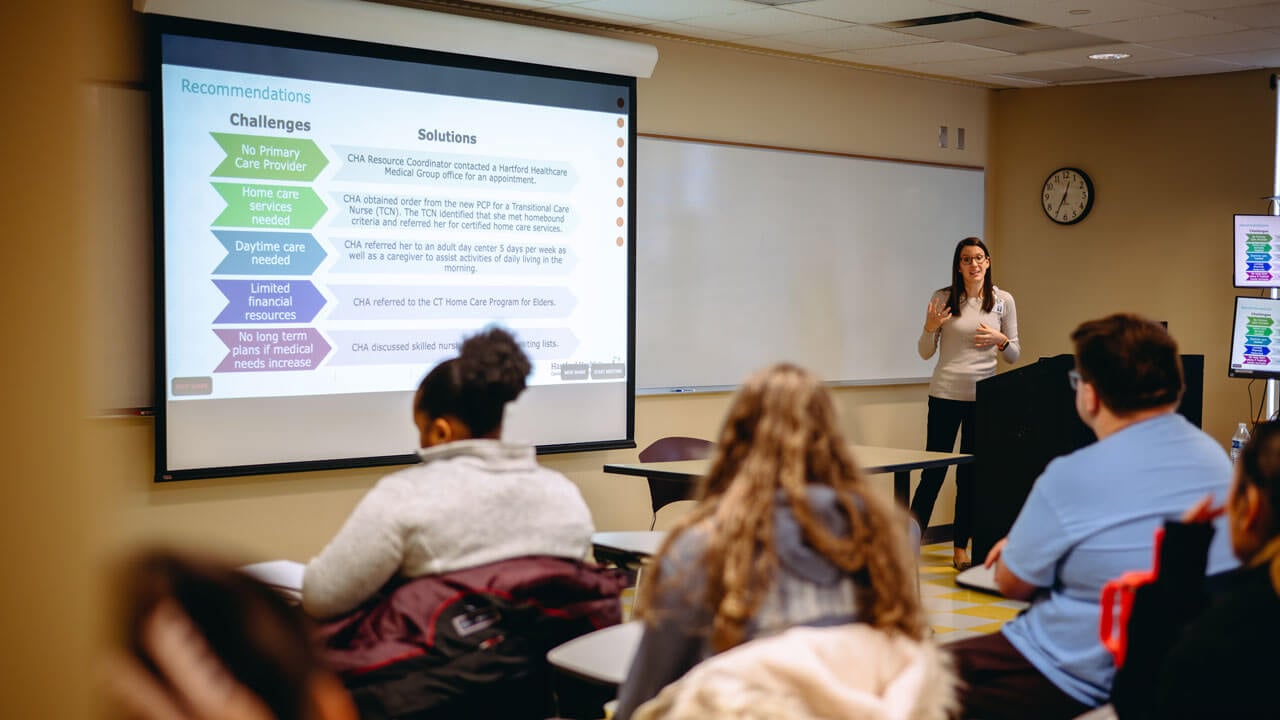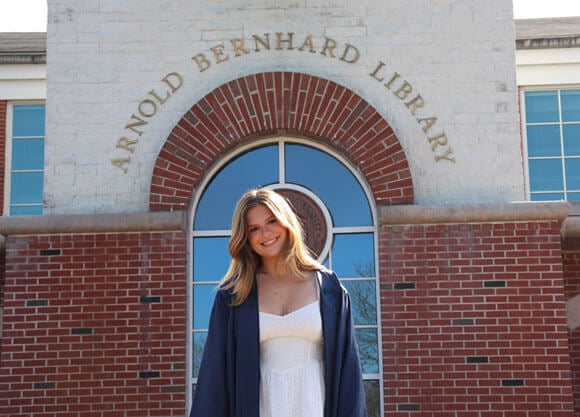
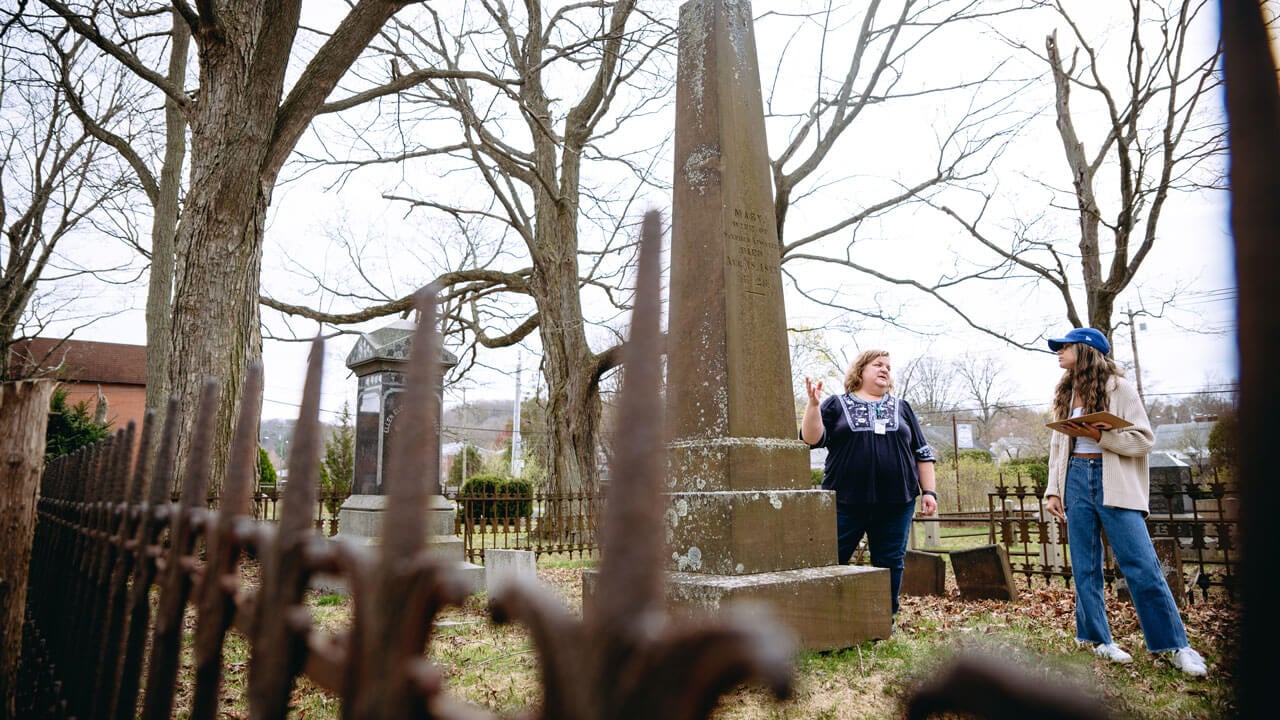
Led by Professor Jamie Ullinger, Bones, Genes and Everything in Between, sought to provide students with a unique learning environment where they strengthened their scientific skills, formulated research design, communicated effectively and analyzed scientific data.
This semester, the course focused on mortality rates and lifespans from the 18th century to the present day. Students were given the opportunity to choose a topic of their choice surrounding mortality rates and lifespans including the effects of antibiotics and vaccines, world events and disasters and the evolution of maternal mortality.
The lab course was set up as a semester-long research project where students learned about the scientific method and apply their skills in a real-world research study. To collect data, students visited three local cemeteries in Hamden — the Mount Carmel Burying Ground, the Whitneyville Cemetery and the State Street Cemetery.
In the cemeteries, students collected data that relates to their hypothesized research questions. This includes birth dates, gender indicators, death dates and names.
Through this experience, students explored human origins and modern human diversity from an evolutional perspective, providing them with an in-depth understanding of biological anthropology and ethical research skills. At the end of the course, students presented their research in a final poster, drawing critical conclusions about their corresponding topics.
As an inquiry and explorative course, students from various fields of study are encouraged to take advantage of this opportunity.
“Everyone can benefit from learning these kinds of inquiry skills,” said Ullinger. “We learn some very practical things in this class like how to do background research, use peer-reviewed sources, collect data and create charts and graphs. All of these skills are useful in any career field.”
In addition to these skills, students also learned the importance of practicing ethical research. The course provided a lecture on ethics and students were briefed on the necessary guides to maintain respect to the community and to those who have loved ones at the cemeteries.
For many students like Haley Weiner ’26, AN 104 has been a unique opportunity to take a course outside of their direct fields of study. As a law in society major and economics minor, Weiner emphasized the value of the research skills learned in this course.
“While the class doesn’t necessarily fall in line with my career in law, the class requires group work and research, both of which will be required in my desired career,” said Weiner. “I would highly recommend anyone to take the course even if they are not pursuing a career in anthropology.”
In addition to its educational value, Ullinger provided fun and unique learning opportunities.
“This course has been very fun,” said student Josephine Miller ’26. “My favorite part has been the trivia-style review games that we do. It’s so fun and rewarding to see how much of the information we had learned actually stuck.”
In this Article
Stay in the Loop
Quinnipiac Today is your source for what's happening throughout #BobcatNation. Sign up for our weekly email newsletter to be among the first to know about news, events and members of our Bobcat family who are making a positive difference in our world.
Sign Up Now
